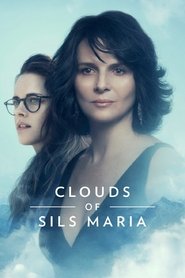Finally, then, this is a film about the centrality of the actress. I insist on “actress” just as I insist that it’s crucial to the film’s meaning that all the directors in it are male, and not a sexist accident, or even just a gesture towards realism. This is a film about the relationship between the female actor and the male writer/director, which tracks the structural inequalities that prevent the character from realizing what the film itself ultimately proves for the actress: that she has the power to create her own meaning.
— Shonni Enelow (Reverse Shot)
There’s definitely the Persona aspect of it. There’s also the Bitter Tears of Petra Von Kant aspect of it. It’s stuff that I usually don’t use in my movies. I just hate the notion of relating and quoting from movies, because the language has to be from real life, not from movies. But in this case, what can I say, I couldn’t really stop it.
— Olivier Assayas (Interview in Slant Magazine)
In the final analysis, Assayas perhaps promises more than he delivers, as the film stumbles a bit in its closing stretches. (Plus, while Assayas keeps the events we witness ambiguous—so as to leave them open to interpretation—Moretz’s performance remains too one-note, her Jo-Ann a rather charmless twit, which upsets the delicate balance the filmmaker has constructed.) And yet, Clouds of Sils Maria finds plenty of fertile terrain in what should be well-trod turf. It’s a movie so psychologically rich that its outer trappings soon give way to universal anxieties about what exactly defines us. With a film this attuned to the complexity (and unraveling) of identity, it’s barely a surprise when one of the characters literally disappears from the story.
— Tim Grierson (Paste Magazine)
Narratively and thematically, it might make sense to remove Val from the movie with about 30 minutes remaining, but Kristin Stewart's absence leaves a vacuum that nothing fills. Intellectually, we may understand Assayas' reasons for doing this but it is a fundamentally unsatisfying choice. Stewart, with her natural, unforced performance, provides us with a window into the bubble of Maria's artificial world. We feel her absence when she's gone. This is Maria's story, to be sure, but in many ways she's the least interesting character on screen.
— James Berardinelli (ReelViews)
If you want to argue [that] the Twilight series was nothing more than lightweight libidinal fantasy for teenage girls, of course that’s all true. But the reaction to Stewart and Twilight was often tinged with a kind of sexism and snobbery we simply don’t encounter when it comes to libidinal fantasy for teenage boys, such as the Marvel Comics franchises that have become Hollywood’s bread and butter. I would certainly agree that the Twilight movies were chaotic and internally contradictory texts that wrestled with a chaotic swell of desire and ridiculously obvious symbolism – but again, how does that make them different from most big-budget Hollywood spectacles? For a very large subset of the haters, the real problem was the girl-cooties.
— Andrew O'Hehir (Salon)
In spite of the superficial dynamics of the young-actress-meets/conquers-older-star scenario, which are fully acknowledged, Clouds of Sils Maria is oodles more poetic and enigmatic than the term “backstage drama” generally encompasses. It isn’t a story of predatory ambition or women stabbing each other in the back; all the characters in the movie have their reasons, but the film, at least in the show business aspects of its story, is concerned with the paradox of self-preservation within an enterprise that requires you have to invest your trust with so many other people.
— Glenn Kenny (RogerEbert.com)
From Assayas to Cronenberg to Kelly Reichardt, Stewart has consciously styled herself—like Nicole Kidman before her—as a ready and willing auteur plaything.
— Adam Nayman (The Ringer)

